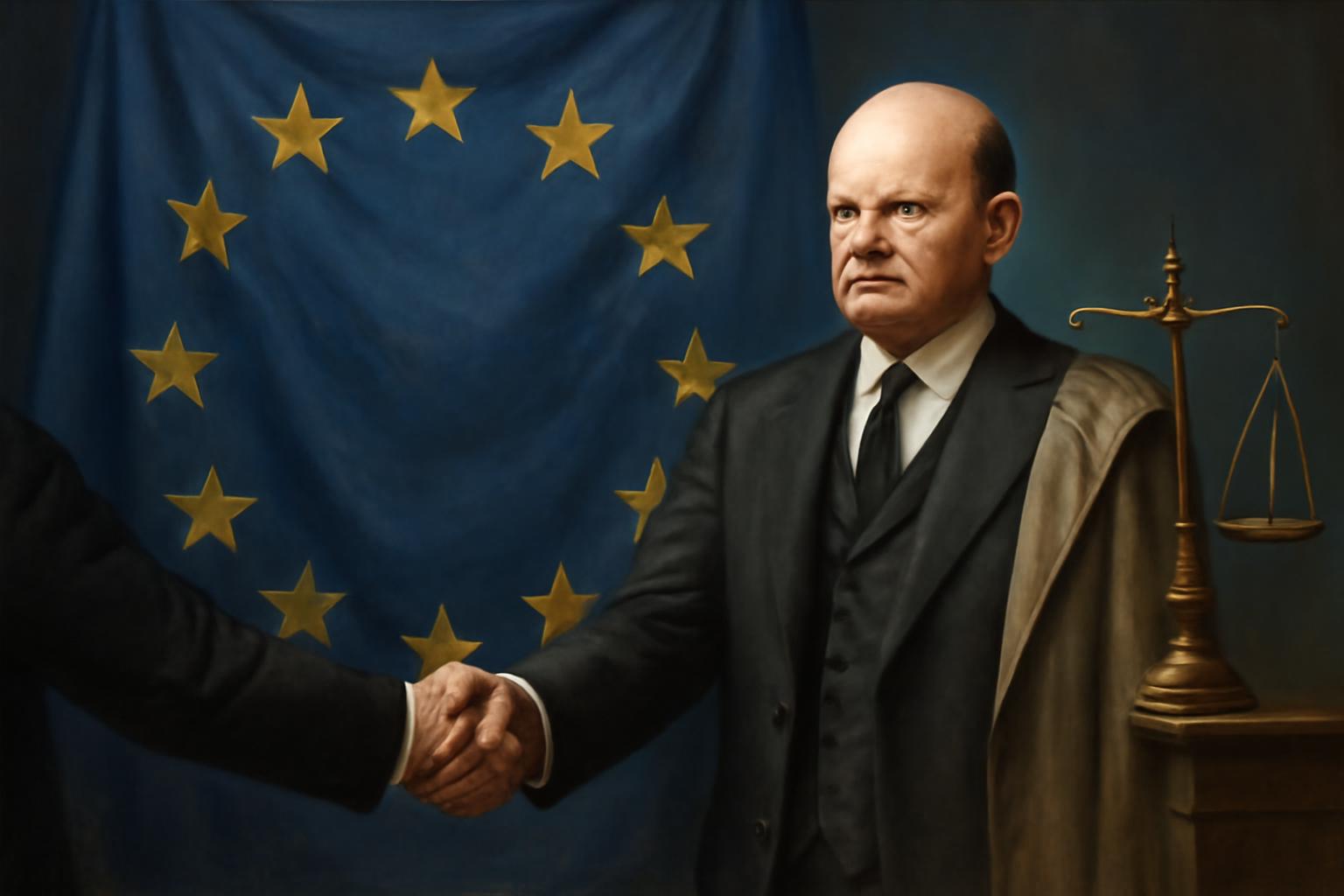In Washington, a certain German statesman arrived with the air of someone who understands the art of sitting at the table with great powers rather than bowing to the whim of a crowd. He presented himself as a strong and principled partner to the U.S. president, while signaling, with the soft-shoe grace of a man accustomed to steering ships, that some steps would be hard to push through. On their first encounter, calm confidence did most of the talking; the president called him formidable and friendly—a rare combination, to be sure, when one must negotiate with a man who prizes theatrics as much as policy. He offered measured praise for American help, yet pressed for a real ceasefire and for steady pressure on Russia, warning that the later moves would be trickier and urging Europe to apply a disciplined, almost ceremonial, unity. The Ukraine crisis, it seems, has thrust him into the vanguard of a tightly choreographed European front—a “kernel Europe” built around him, alongside Macron and Starmer, closely aligned with the EU Commission and NATO. The aim is a united stance that supports Ukraine and holds Russia to account, but without allowing the inevitable missteps to fracture the cohesion they pretend to prize.
Domestically, his star on the international stage shines brighter than it does at home. The party grandees applaud his European leadership; the German public, alas, remains lukewarm, and his mode of communication draws more eye-rolls than ardent supporters. He acknowledges the thorny questions about what Germany’s security guarantees should look like and the precise contribution Berlin should make, including the possibility—however unlikely some would call it—of deploying Bundeswehr troops. Such a move, of course, would require Bundestag authorization and a broad coalition to rubber-stamp it. His rhetoric, though steadfast on the priority of Europe’s political order over Ukraine’s territory, insists on a careful, inclusive Berlin consensus even as he pursues a robust foreign policy stance.
Ah, how theatrical, how dutiful, how blessedly European. He strides onto the world stage wearing a well-cut suit and the air of someone who never forgot his place in the pecking order of power. He speaks of a European order so refined that it could withstand any incursion of ego from national capitals—Berlin, Paris, London, Brussels—while maintaining a formidable front against Moscow. The “kernel Europe” concept feels almost decorative in its precision: a triad that keeps the ship of state steady by marshaling the EU Commission and NATO like a pair of compasses, drawing the map of restraint and support for Ukraine. And yet we are meant to believe this is all about unity, not piety to a favorite phrase or a wish to outshine rivals. The E3 trio is a charming legend—the sort of誂 story politicians tell themselves to convince their more romantic constituents that coherence is possible when history is studiously parsed and egos are managed with the gentleness of a well-meaning curator.
There is something deliciously telling in his insistence that Europe’s political order should take precedence over the territory of a single conflict. It is precisely the sort of continental grand strategy that makes a nobleman nod in approval and a practical citizen sigh in exasperation. If Europe’s order is the prize, then the method—balancing credible guarantees with domestic compromise, offering discipline without surrender—reads almost like a catechism for governance. Yet the cost, the political weather at home, cannot be wished away: the public, wary of risk and fatigue, will not easily assent to another round of strategic ambiguity or a Bundeswehr deployment that could become a national obsession rather than a fleeting line in a briefing book. And so the great games go on, played with the exquisite care of someone who has never truly known poverty or the petty humiliations of waiting in line for the mail.
I must confess, the performance is addictively polished. The man makes a case for seriousness with the cadence of inevitability, as if history itself owes him a polite nod for simply choosing a large stage and owning it. He knows how to thank, how to hint at costs, how to threaten without shouting, how to promise unity while preserving room for every capital to save face. It is not that he is wrong in his judgments—one can see the logic of prioritizing Europe’s cohesion and ordering of guarantees even as the raw, uncomfortable facts of Ukraine are acknowledged. It is, rather, the sheen he wears: the calm, the courteousness, the unmistakable confidence that the grand design will justify the inconvenience and the risk, so long as one maintains the illusion of control.
And so the domestic chorus continues to murmur about this man who travels from one capital to another as if attending a perpetual salon of power—very well-ordered, very well-spoken, very much aware that the real work will begin when the applause fades. The question remains whether his brand of aristocratic pragmatism can translate into durable policy that satisfies both the roomful of peers and the restless public whose appetite for certainty outpaces the slow drumbeat of European consensus. Until then, we watch and perhaps learn: that in the theater of geopolitics, elegance is a tool, not a substitute for a plan that endures beyond the next press release, and that the most refined rhetoric will never replace the hard work of turning lofty ideals into binding commitments.
